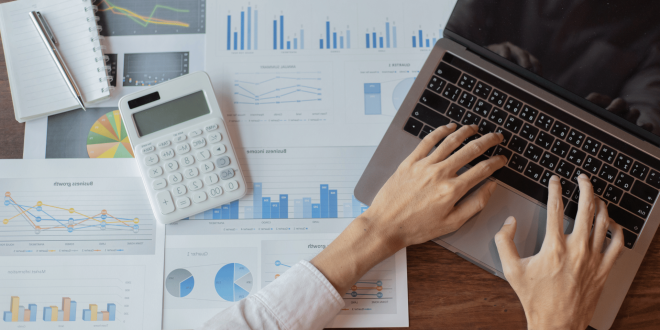As a freelancer in the UK, managing your tax returns might feel like walking through a financial minefield. Many self-employed individuals grapple with tax complexities, often unsure if they’re claiming the right deductions, understanding tax brackets, or following compliance requirements. Here’s where a tax accountant can step in as a valuable partner. But is hiring one worth the investment? Let’s break down what tax accountants do for UK freelancers, from preparing tax returns to optimizing tax savings.
Introduction
Freelancing in the UK comes with a host of responsibilities, from managing client projects to tracking income and expenses. But for many, the biggest challenge is handling tax requirements. Unlike traditional employees, freelancers are responsible for their own tax filings, and mistakes can be costly. That’s why many consider hiring a tax accountant to help ensure they’re compliant and taking advantage of every possible tax benefit.
Who is a Tax Accountant?
An online tax accountant in the uk is a professional specializing in tax law, compliance, and the preparation of tax returns. They assist individuals and businesses in managing tax obligations and can help reduce tax liabilities through expert guidance and planning.
What Services Does a Tax Accountant Offer?
Tax accountants offer a range of services, including:
- Preparing and filing tax returns.
- Offering advice on tax planning.
- Providing insights into tax-saving opportunities.
- Ensuring compliance with HMRC regulations.
Do Freelancers Need a Tax Accountant?
While it’s not mandatory for freelancers to hire a tax accountant, doing so can save time, reduce stress, and even uncover ways to save on taxes. It depends on individual needs and the complexity of their financial situation.
Tax Requirements for UK Freelancers
Freelancers in the UK are subject to specific tax obligations. They must:
- Register as self-employed with HMRC.
- Complete a Self-Assessment tax return each year.
- Pay Income Tax and National Insurance based on earnings.
Self-Assessment Tax Return: A Primer
The Self-Assessment tax return is the primary way UK freelancers report their income and calculate tax owed. It involves detailing income, allowable expenses, and any other relevant financial information. Mistakes can lead to penalties, making accuracy essential.
The Role of Tax Accountants in Self-Assessment
A tax accountant can simplify the Self-Assessment process by ensuring all financial information is accurately compiled and submitted on time. They can also advise on which expenses are deductible, helping freelancers to maximize savings.
Benefits of Hiring a Tax Accountant for Freelancers
Freelancers often juggle multiple responsibilities, and tax preparation can be time-consuming. An accountant takes this burden off their hands, reducing the chance of costly errors. Accountants have an in-depth understanding of allowable deductions, ensuring freelancers claim all possible expenses, from office supplies to travel costs.
Ensuring Compliance with HMRC
HMRC has strict regulations, and non-compliance can lead to penalties. A tax accountant helps freelancers stay compliant by keeping up with the latest tax laws and filing requirements. While some freelancers handle their taxes independently, the complexities of tax rules can make this challenging. If finances are relatively simple, freelancers may manage without professional help, but an accountant’s expertise is invaluable as income and expenses become more complex.
Common Tax Deductions for Freelancers in the UK
Freelancers can deduct various business-related expenses, including:
- Office supplies and equipment.
- Travel expenses.
- Marketing and advertising costs.
- Professional subscriptions.
- Insurance for business purposes.
How to Choose the Right Tax Accountant
Selecting the right tax accountant involves:
- Checking qualifications and accreditations.
- Seeking recommendations from other freelancers.
- Asking about experience with freelance clients.
- Comparing fees and services offered.
Cost of Hiring a Tax Accountant
The cost varies depending on the complexity of the freelancer’s financial situation. Fees can range from £150 for basic services to over £1,000 for more detailed tax planning. Many accountants offer consultations, allowing freelancers to determine if the investment is worthwhile.
Is It Worth It? Cost-Benefit Analysis
For many freelancers, the time saved and potential tax savings make hiring a tax accountant a worthwhile expense. By preventing errors and uncovering deductions, an accountant often helps freelancers save more than the cost of their services.
FAQs about Hiring Tax Accountants for Freelancers
- Do all freelancers need a tax accountant? Not necessarily. Freelancers with simple finances may manage on their own, but complex cases often benefit from professional help.
- Can a tax accountant help me if I missed the tax deadline? Yes, accountants can help address late filings and minimize penalties by guiding you through next steps.
- Are tax accountant fees tax-deductible? Yes, fees paid to a tax accountant for business purposes are generally deductible as a business expense.
- How much time can a tax accountant save me? A tax accountant can save freelancers several hours, depending on the complexity of their finances.
- Can a tax accountant help with tax planning throughout the year? Yes, many tax accountants offer year-round planning to optimize tax strategies and reduce future tax liabilities.
Conclusion
Freelancers in the UK face unique tax challenges that can be overwhelming. While managing taxes independently is an option, the expertise of a tax accountant often brings invaluable benefits, from accurate filings to maximize deductions. With a clear understanding of tax requirements and support from a professional, freelancers can focus more on their work and less on the complexities of tax season.
 Diverse Perspectives: Insights & Stories Exploring Ideas, Sharing Knowledge
Diverse Perspectives: Insights & Stories Exploring Ideas, Sharing Knowledge





